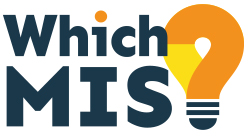We asked the MIS providers to give us their view on how different they anticipated management information systems being by the year 2028…
We’re sensing more timely interventions based on clearer data insight, greater adoption of technologies such as AI, more streamlined and efficient processes and integrations with other tools – not to mention enhanced data security.
Here’s what they each said:
Arbor
“In five years, Arbor will have real-time benchmarking across all data in the MIS, giving schools an instant and much more personalised context on how students are performing. This will help schools have a much more nuanced understanding of how they are performing, and should allow the sector to move away from school inspections that are based on last year’s information.
Developments in artificial intelligence will mean staff can simply type any question they want answered such as “how does the academic performance of our year 8 girls differ from boys” and they will instantly be taken to the right page or report with contextual information. This information will also be summarised in plain English (or other languages) making school data more open, accessible and understandable for all school stakeholders.”
Bromcom
“The MIS landscape is constantly changing, with all stakeholders becoming more data rich. On demand live data will allow for rapid intervention in the classroom. MIS systems will be able not only to identify areas to focus on, but actively generate next steps for improvement.
It is likely that management information systems will become even more integrated with technology such as artificial intelligence, cloud computing, and the Internet of Things. This will likely result in systems that are faster, more data-driven, and more capable of providing real-time insights and recommendations. Additionally, there may be an increased emphasis on data privacy and security, as well as the development of more user-friendly interfaces and improved collaboration features.
Gaps in communication between external parties will begin to close with auto referrals being able to take place. This is the kind of technology that will revolutionise school life over the coming few years.”
Compass
“We expect continued growth of MIS systems into other parts of the school management ecosystem. This will allow schools to further streamline their processes and mean their data is increasingly powerful as more dimensions are added to the single source of the truth. The key will be making sure that these more diverse systems are still easy to use for all stakeholders.
We would also love to see a time when moving to a new MIS can be as easy as switching your bank account. Giving schools choice is powerful, and MIS suppliers need to help our customers have a choice by working to common data standards where possible and respecting schools wishes to switch.
It will be interesting to see how AI can be used to inform our data and analytics work, providing interventions, action plans, and wellbeing observations based on previous data. Ultimately, this will help us improve academic outcomes for children.”
HUBmis
“We have a vision of a world where Independent Schools can choose best of breed EdTech solutions to allow their school to stand out in all the right ways, yet only input data once. This all begins with an MIS built on a read and write API, that will integrate with any EdTech provider. Having solutions like this at the core of Independent Schools will allow all staff to save time, whilst enhancing the pedagogical strategy that is unique to each school.
Once schools can harness the power of their data, on solutions that have an intuitive User Interface much like those we’re used to using in our free time (think Facebook, Instagram- you just know how to use them straight away!) without being restricted by the solutions that house it, efficiencies and opportunities will be realised across the board.”
IRIS Ed:gen
“We predict that while some aspects will remain the same, the fundamental data functionality will undoubtedly improve. We also anticipate that time-consuming tasks will become more simpler once returning or exchanging data with The Department of Education Census is automated.
There will also be greater attention on the use of Artificial Intelligence to compile and report on data from multiple sources – supporting teachers and leaders in making strategic decisions and planning critical interventions to benefit students.
iSAMS
“Data security will continue to grow at the heart of school management systems. We expect to see enhancements to systems for better control over confidential data, streamlined processes and seamless integrations.”
Satchel One
“We have already seen that the lines between an MIS and classroom management tools or learning platforms is becoming blurred. There will be a continuation of this shift over the next 5 years as software providers work to build breadth and depth with quality MIS solutions.
The MIS of the future will allow for a more holistic view on schools and education more broadly, using AI powered data analysis to highlight trends, warning signals and insights about anything from student achievement to teacher burnout.”
SIMS
“The MIS landscape will have changed dramatically by 2028. According to the SIMS product development team: “Our systems will actively analyse different data sets to spot a drop off in achievement in a particular at risk group, for instance, or identify that a certain pupil’s wellbeing may be suffering. This will trigger alerts to teaching or management staff so they can focus on solutions to any issues, rather than trying to uncover which issues may be holding back pupil success.”.
Veracross
“The global MIS market has traditionally lagged behind global SaaS (and even other global ed-tech) in innovation and development. Veracross is working hard to change that for schools! Recognising that the needs of schools are always changing, Veracross is committed to continuous development, support, and integrations that will serve schools and teachers and allow them to focus on what truly matters most —educating students. Over the next five years, management information systems will need to account for evolving education models, new methods of payment, cutting edge admissions practices, quality of parent engagement and of course, compliance with the ongoing and ever-changing requirements for schools. Schools will continue to look to consolidate systems to save money, making breadth of functionality critical for an MIS. ”
N.B. This is not an exhaustive list of UK MIS providers, we are simply replicating here the views of those who responded to our request for information.

